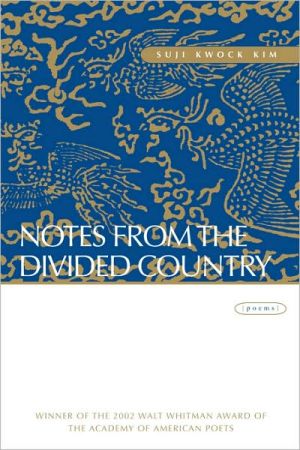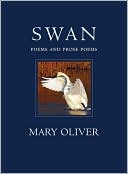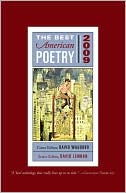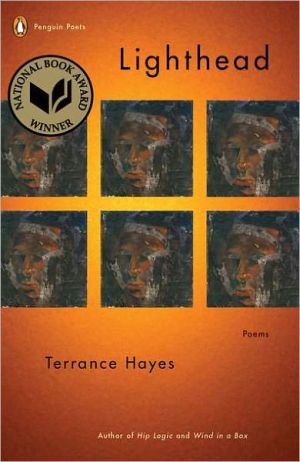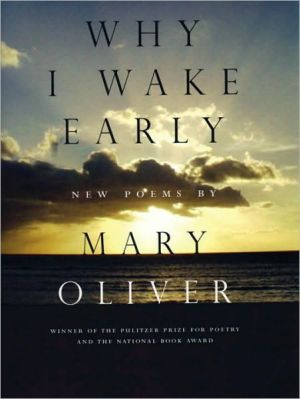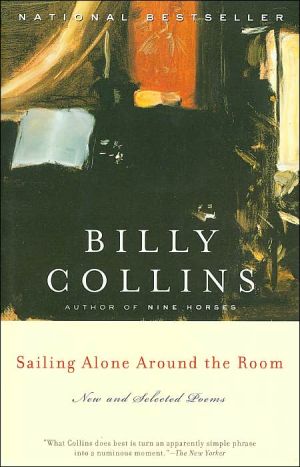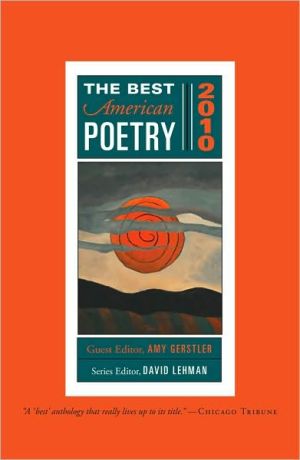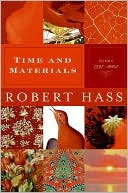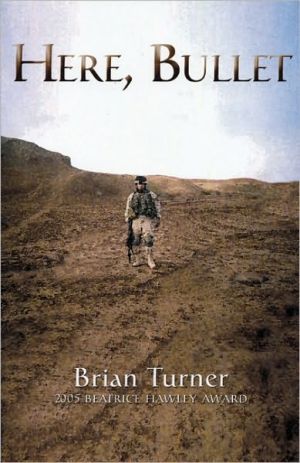Notes from the Divided Country
Winner, 2004 Bay Area Book Reviewers Award\ Finalist, 2004 Griffin International Poetry Prize\ Notable Book, 2004 Kiriyama Rim Pacific Rim Book Prize\ \ \ About the Author\ Suji Kwock Kim's poems have appeared in THE NATION, THE NEW REPUBLIC, PARIS REVIEW, DOUBLETAKE, POETRY, YALE REVIEW, TIN HOUSE, KENYON REVIEW, ASIAN-AMERICAN POETRY: THE NEXT GENERATION, and other journals and anthologies. PRIVATE PROPERTY, a multimedia play she co-wrote, was produced at the Edinburgh Festival Fringe and...
Search in google:
Winner of the 2002 Walt Whitman Award of the Academy of American Poets, selected by Yusef Komunyakaa In her first collection, Suji Kwock Kim confronts some of the most difficult, most unanswerable questions --- colonialism, the Korean War, emigration, racism, love. She considers what a homeland would be, for a divided nation and divided self: what it means to enter language, the body, the family, the community; to be a daughter, sister, lover, citizen or exile. In settings from New York to San Francisco, Scotland to Seoul, her poems question "what threads hold/our lives together" in cities and gardens, battlefields and small towns. Across the no-man's-land between every "you" and "I," her speakers encounter, quarrel with, or honor others, traveling between the living and the dead, between horror over the disastrous events of the past, and hope for the future. With its wide range of voices, styles and perspectives, NOTES FROM THE DIVIDED COUNTRY bears witness to the vanishing world.The Villiage VoiceSuji Kwock Kim's Whitman Award-winning collection arrives at a moment when many Asian American poets bristle at the . . . "ghettoization" of ethnic poetries in American letters. Kim's NOTES FROM THE DIVIDED COUNTRY opens with an almost . . . mythic retelling of the poet's conception in the "labyrinth of mother's body." After this surreal, prenatal fugue, the book abruptly shifts gears and launches into a series of first-person accounts of political atrocities perpetrated by the Japanese during the forced colonial assimilation of Korea and later by the Americans during the Korean War. An epigraph by Brecht alerts us to the fact that these imaginary perspectives are a deliberate attempt to flunk the ethnic litmus test of "authenticity." Citizens from Kim's home village are "blown to hieroglyphs of viscera" --- a piercing, uncanny image that doubles as a critique of the aestheticization of historical trauma.
Whatever you meant to love, in meaning to You changed yourself: you are not who you are,\ \ Your soul cut moment to moment by a blade Of fresh desire, the ground sown with abandoned skins.\ And at your inmost circle, what? A core that is Not one. Poor fool, you are divided at the heart, Lost in its maze of chambers, blood, and love, A heart that will one day beat you to death. \ —--- from Monologue for an Onion
AcknowledgmentsGeneration3The Tree of Unknowing6The Tree of Knowledge7Middle Kingdom13Translations from the Mother Tongue15Occupation19Borderlands20Hwajon21Resistance22Animal Farm25The Chasm26Song of Ch'u: To the Sea-Wind28Fragments of the Forgotten War30Flight33Looking at a Yi Dynasty Rice Bowl34Montage with Neon, Bok Choi, Gasoline, Lovers & Strangers35Hanji: Notes for a Papermaker41Leaving Chinatown43Aubade Ending with Lines from the Japanese44Nocturne45Drunk Metaphysics47The Road to Skye48The Couple Next Door49Monologue for an Onion51Prelude for Grains of Sand55On Sparrows56Fugue for Eye and Vanishing Point61Skins62Transit Car63Levitations65RICE66Between the Wars68The Robemaker70The Korean Community Garden in Queens71Notes73
\ Suji Kwock Kim’s title NOTES FROM THE DIVIDED COUNTRY refers not only to the Koreas North and South and to all the Americas, but also to the countries of the mind. Travelling between past and present, Kim’s powerful fictive imagination creates almost unbearably realistic enactments of war-zones once inhabited by her parents, grandparents, and even her great-grandparents. If “death is no remedy for having been born”, as she says in “The Tree of Knowledge”, then perhaps poetry is: poetry as expiation, history, memory treasure trove. In highly sophisticated verse, with lines long and lean or short and subtle, an exorcism seems to take place through the precision and music of her language. In poems about the couple next door in San Francisco, or the poet on the road to Skye in Scotland, or in the streets of Seoul on the Buddha’s birthday, Suji Kwock Kim celebrates being alive and well in the complexities of the present moment.\ —Griffin International Poetry Prize, Judges’ Citation (Billy Collins, Bill Manhire, Phyllis Webb)\ \ \ \ \ Los Angeles Times Book ReviewI wish I had space in which to consider at length the important debut of Notes From the Divided Country by Suji Kwock Kim. It seems to me that this first book (already acknowledged by the 2002 Walt Whitman Award) deserves close and celebratory attention.\ Suji Kwock Kim has written a book of unforgettable poems; she has found a way, through the medium of language, to allow readers into a double consciousness that is, finally, the poet's undivided mind. She writes of the "old country" reborn in the New World, of her ancestors in Korea during the Japanese occupation and her immediate family in America: the Trees of Unknowing and Knowledge.\ In one of the most inspired and brilliant poems, she considers sparrows and their symbology: "How to stay faithful / to earth, how to keep from betraying / its music " she wonders - as she writes of the Earth that both divides us and brings us together. — Carol Muske-Dukes\ \ \ \ Ray OlsonThe four parts of Ms. Kim's impressive first collection contain poems of family, history, love, and vision, respectively. The first part is punch-in-the-guts powerful. After opening with the virtuosic "Generation," tracing the poet's journey from before conception to implantation in the womb, the poems lay out a painful familial scenario, the soul-searing climax of which comes in "ST RAGE," in which sadistic boys torment the poet's handicapped brother. Anguish also pervades the second section's preoccupation with the half-century of horror Ms. Kim's ancestral homeland, Korea, endured, first under Japanese occupation, then in the Korean War; members of Ms. Kim's family played historic roles then, and they figure as actors and dedicatees here. The third section's poems on love are analytic, personal, and sensual, though seldom all at once; whereas pain predominated in the first two sections, emotional intensity preoccupies these poems. In the last section, Ms. Kim applies that intensity to observation of art and nature, so strikingly that, for instance, having read "On Sparrows," you may never regard those common birds as commonplace again.\ —Booklist\ \ \ \ \ The Los Angeles TimesSuji Kwock Kim has written a book of unforgettable poems\ \ \ \ \ The Villiage VoiceSuji Kwock Kim's Whitman Award-winning collection arrives at a moment when many Asian American poets bristle at the . . . "ghettoization" of ethnic poetries in American letters. Kim's NOTES FROM THE DIVIDED COUNTRY opens with an almost . . . mythic retelling of the poet's conception in the "labyrinth of mother's body." After this surreal, prenatal fugue, the book abruptly shifts gears and launches into a series of first-person accounts of political atrocities perpetrated by the Japanese during the forced colonial assimilation of Korea and later by the Americans during the Korean War. An epigraph by Brecht alerts us to the fact that these imaginary perspectives are a deliberate attempt to flunk the ethnic litmus test of "authenticity." Citizens from Kim's home village are "blown to hieroglyphs of viscera" --- a piercing, uncanny image that doubles as a critique of the aestheticization of historical trauma.\ \ \ \ \ Washington Post Book WorldI've been struck by the rich and complicated way that many young Asian-American poets, [such as Suji Kwock Kim], have been dealing with their ancestry and engaging the past. These poets are creating an art that looks forward by turning back. Their work confronts history and comes to terms with a wide range of cultural influences, a complex and divided inheritance.\ Suji Kwock Kim's first book, Notes From the Divided Country, moves fluently between the living and the dead, the Korean past and the Asmerasian present. Her heartfelt work is shadowed by the question of what is passed on through a long, blood-soaked history. She tracks the generations through strong poems for her great-grandparents, her grandmother, her father and, especially, her mother. She also traces the tormented, catastrophic history of countless others, many of them nameless, who figured in the making of more than half-a-million new Americans. — Edward Hirsch\ \ \ \ \ \ Publishers WeeklyWinner of the Academy of American Poets' Walt Whitman Award, Kim's debut documents "Generation," "Occupation," "Hwajon" ("Fire-field"), "Resistance," "Drunk Metaphysics," the "Korean Community Garden in Queens" and 30 other hotly contested, deeply resonant sites, "A surf of objects that beat against the doors of the skull/ and are never abandoned." Copyright 2003 Reed Business Information.\ \ \ \ \ Library JournalThese reflective discourses on the Korean American experience show why Kim has received numerous fellowships, as well as a The Nation/Discovery Award. Copyright 2003 Reed Business Information.\ \
